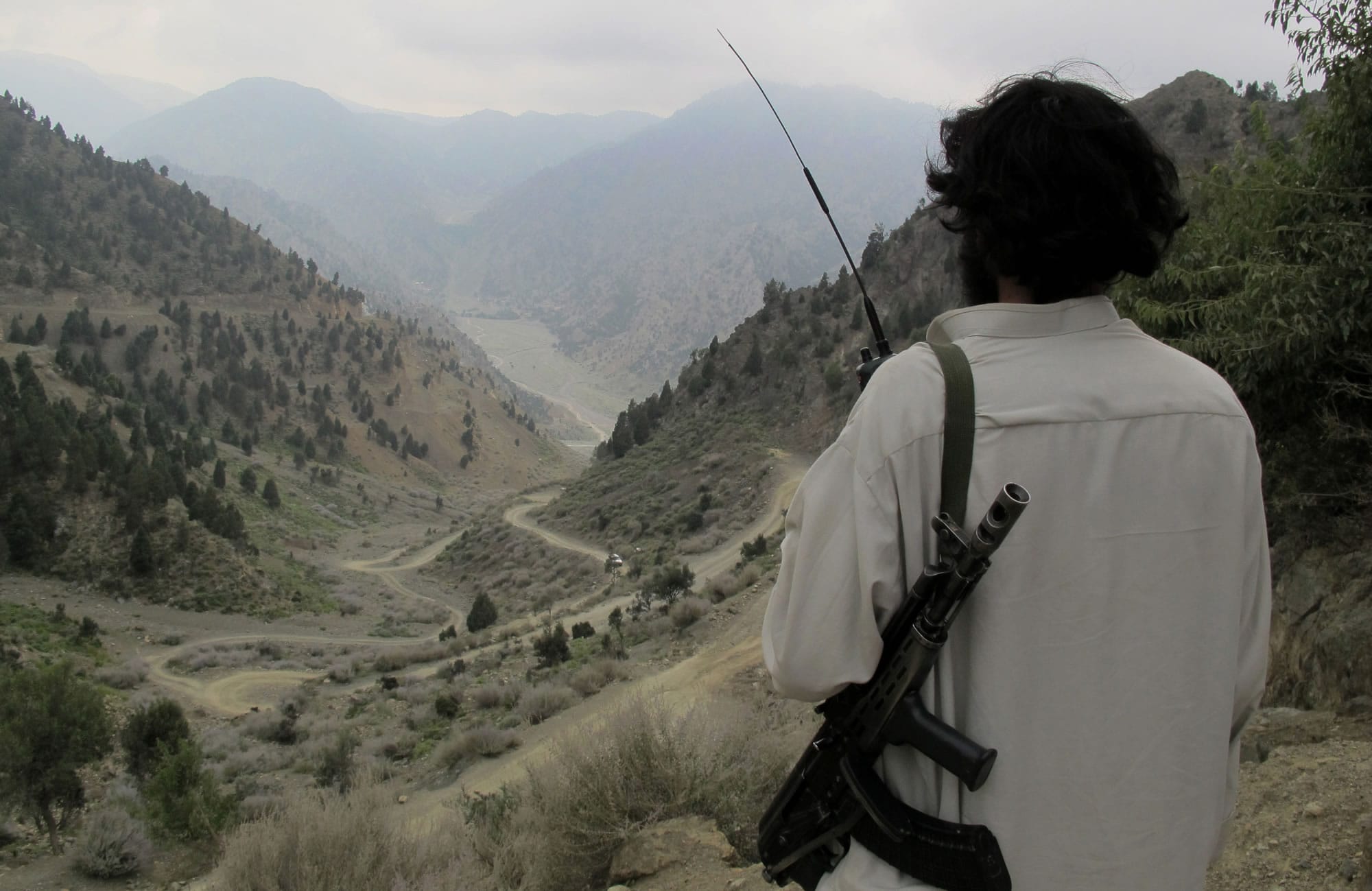ISLAMABAD — Militants in Pakistan’s most populous province are said to be training for what they expect will be an ethnic-based civil war in neighboring Afghanistan after foreign forces withdraw in 16 months, according to analysts and a senior militant.
In the past two years the number of Punjab-based militants deploying to regions bordering on Afghanistan has tripled and is now in the thousands, says analyst Mansur Mehsud. He runs the FATA Institute, an Islamabad-based think tank studying the mix of militant groups that operate in Pakistan’s tribal belt running along much of the 2,600-kilometer (1,600-mile) Afghan-Pakistan border.
Mehsud, himself from South Waziristan where militants also hide out, says more than 150 militant groups operate in the tribal regions, mostly in mountainous, heavily forested North Waziristan. Dotted with hideouts, it is there that Al Qaida leader Ayman al-Zawahri is thought by the U.S. to be hiding, and where Afghanistan says many of its enemies have found sanctuary.
While militants from Punjab province have long sought refuge and training in the tribal regions, they were fewer in number and confined their hostility to Pakistan’s neighbor and foe, India.
All that is changing, say analysts.
“Before, they were keeping a low profile. But just in the last two or three years hundreds have been coming from Punjab,” said Mehsud. “Everyone knows that when NATO and the American troops leave Afghanistan there will be fighting between Pashtuns and non-Pashtuns.”
And the Punjabi militants will side with the Afghan Taliban, who are mostly Pashtun, Afghanistan’s dominant ethnic group and the majority ethnic group in Pakistan’s northwest region that borders Afghanistan. Like many in the Taliban, the Punjabi militants share a radical and regressive interpretation of Islam.
“We will go to Afghanistan to fight alongside the Taliban as we have done in the past,” said a senior member of the Lashkar-e-Jhangvi (LeJ), a militant Sunni Muslim group, who goes by a nom de guerre, Ahmed Zia Siddiqui.
In an interview with The Associated Press in Pakistan, he said the Taliban haven’t yet requested help, but when asked whether Punjab-based militants were preparing for war in Afghanistan after the foreign withdrawal, he replied: “Absolutely.”
Despite being outlawed in Pakistan, Siddiqui’s group is among the most active and violent, providing a cadre of suicide bombers for attacks both in Pakistan and in Afghanistan. It has taken responsibility for dozens of attacks that have killed hundreds of minority Shiites in Pakistan.
It has also been implicated in some of the most spectacular attacks in Pakistan, including the 2008 bombing of a five-star hotel in the capital and an assassination attempt on former dictator and U.S. ally Gen. Pervez Musharraf.
Zahid Hussain, whose books plot the rise of militancy in Pakistan, said at least two dozen militant groups are headquartered in Punjab province, while in Waziristan their numbers are growing as mainstream religious parties such as Jamaat-e-Islami recruit young men to the militant cause.
“Even if a settlement occurs in Afghanistan there are still a lot who will continue to fight and those who are most likely to resist a settlement are Pakistani militants,” Hussain said. He said that during a recent trip he made to North Waziristan, local tribesmen spoke of the influx of Punjab-based militants into their area. Foreign journalists are not allowed in the tribal regions.
Pakistan’s new elected civilian government has promised a strategy to tackle the militants whose actions, says Prime Minister Nawaz Sharif, are a scourge that has killed upward of 40,000 Pakistanis in recent years.



